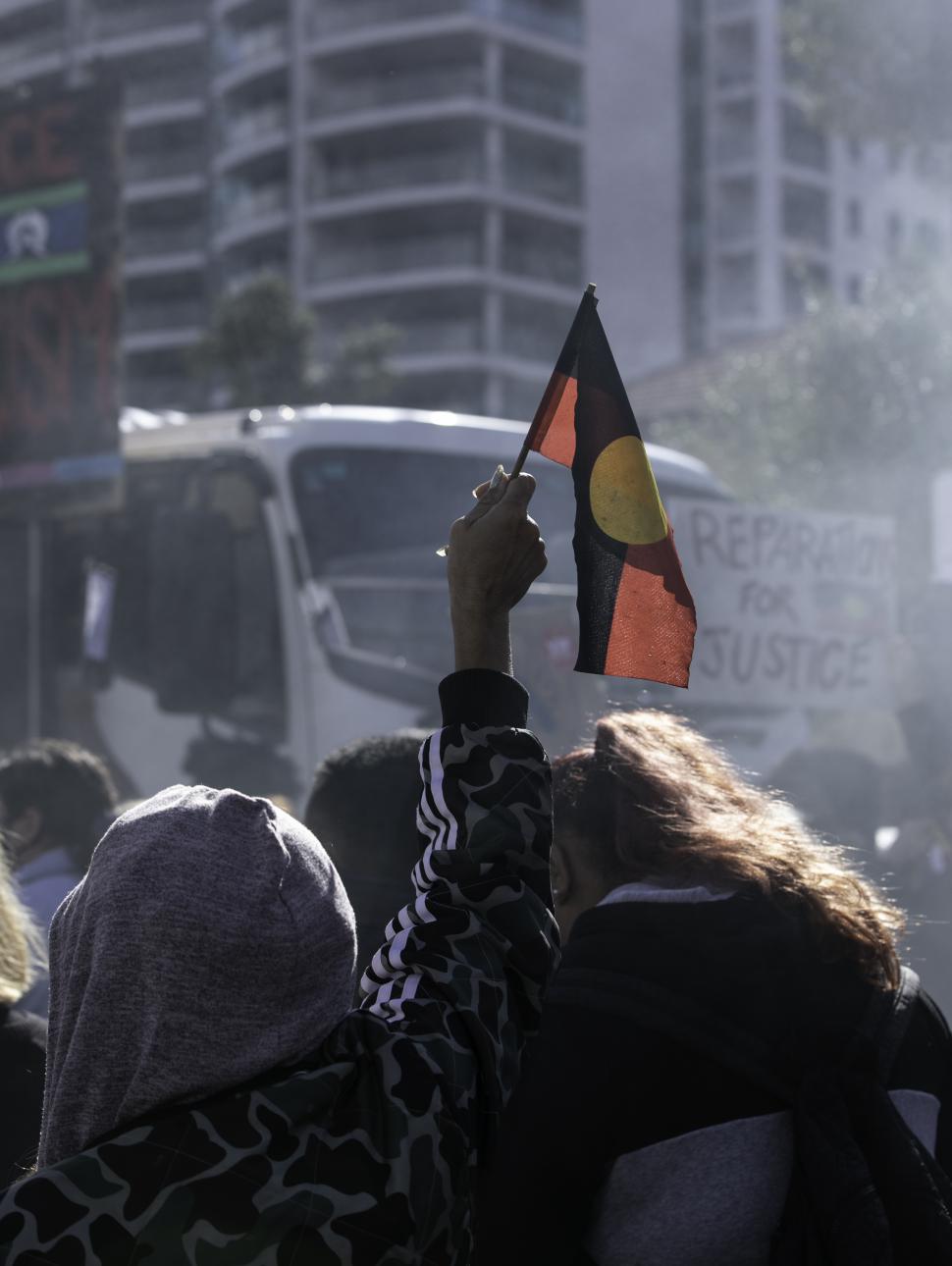
Investigating rights and freedoms
Dates
Weekdays during school term | 10am and 12.30pm
$280 per group (up to 32 students)
In this program we focus on the principles of human rights in Aboriginal and Torres Strait Islander peoples’ struggle for equal rights, recognition and self determination.
Using an inquiry approach, students investigate first-person accounts and case studies of Aboriginal and Torres Strait Islander resistance, protest, and triumph in the Wesfarmers Ngalang Koort Boodja Wirn Gallery.
Drawing on artefacts, objects, oral histories and digital content, they form an opinion on whether Aboriginal and Torres Strait Islander peoples’ are afforded the same rights as other Australians.
Student experience
Students will:
- Explore the themes of Rights and Freedoms through the Wesfarmers Ngalang Koort Boodja Wirn Gallery
- Use inquiry-based learning to gather evidence
- Investigate how Aboriginal and Torres Strait Islander peoples in Australia have fought for rights and freedoms
- Explore human rights—what they are, why we have them and how they can be challenged
- Develop tools to discuss complex and difficult topics with empathy
Program feedback
"Very professional and powerful presentations."
Curriculum links
This program links to the following strands of the Western Australian Curriculum:
Year 10
Humanities and Social Sciences
Depth Study 2: Investigating rights and freedoms
- The background to the struggle of Aboriginal and Torres Strait Islander Peoples for rights and freedoms before 1965, including the 1938 Day of Mourning and the Stolen Generations (ACDSEH104)
- Methods used by civil rights activists to achieve change for Aboriginal and Torres Strait Islander Peoples, and the role of ONE individual or group in the struggle (ACDSEH134)
- The origins and significance of the Universal Declaration of Human Rights, including Australia's involvement in the development of the declaration (ACDSEH023)
- The significance of one of the following for the civil rights of Aboriginal and Torres Strait Islander Peoples: 1962 right to vote federally; 1967 Referendum; reconciliation; Mabo decision; Bringing Them Home Report (the Stolen Generations), the Apology (ACDSEH106)
Civics and citizenship
- Justice at home and overseas: The international agreements Australia has ratified and examples of how they shape government policies and laws (e.g. the protection of World Heritage areas, the International Convention on the Elimination of All Forms of Racial Discrimination, the Convention on the Rights of the Child, the Declaration on the Rights of Indigenous Peoples) (ACHCK093)
Year 11
History ATAR
Unit 2 – Movements for change in the 20th century
Elective: Recognition and rights of Indigenous Peoples
Year 12
History ATAR
Unit 3 – Modern nations in the 20th century
Elective: Australia 1918-1955
All facilitated workshops are led by the Museum’s experienced Learning and Engagement team and have been curated using the Museum’s unique resources to provide a deeper learning experience in our specialist subject areas.
Your booking for a facilitated workshop will include all materials and activities for the duration of the program with no prior preparation required.
As part of all facilitated workshop bookings, you are welcome to explore the rest of the Museum free of charge pre or post workshop and do not need to make any additional bookings to do so. WA Museum Boola Bardip is open daily from 9.30am to 5pm, with last entry at 4pm.
Image by Marnie Richardson Photography.